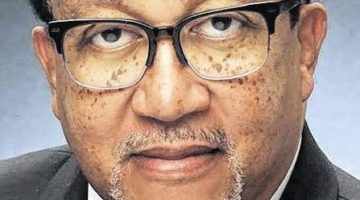In the recent news, there has been so much written about Rachel Dolezal, the former Spokane, Washington NAACP branch President, who lied about being mixed race. She is biologically Caucasian.
Most of the trending comments support the notion that a white woman cannot arbitrarily become a mixed race woman. Not by affinity. Not by assimilation. Not through marriage. Not by giving birth to a black child. Not by use of makeup, tanning products, or hair texturizing. Nor, by any other means.
The overwhelming sentiments are that it is impossible to switch ranks. Or is it?
“You’re the whitest black girl I’ve ever met.”
The time I first heard my former husband say that, I was not sure if it was a compliment or a criticism.
Clearly, I don’t look white, but within the context, it could have been both.
It was 1968, and he referring to a particular set of behaviors, my speech pattern, and my liberal world view that I had adopted over four years I had spent at Marymount College, Tarrytown, New York.
But I knew who I was, and where I was from: I am a black African- American; born, and raised in Miami, Florida. There was never any conflict in my mind about that.
Growing up in the near south, I was ‘colored’ at first; then Negro, with a capital N; then African American, but always, in every way, black in my consciousness.
What did that mean?
I am socially, culturally, and historically, black.
Racially?
My dad’s family is proudly American: a broad mixture of Africans; Swiss-Germans; and, remnants of the Creek nation left in South Carolina. They have documented their inherited legacy of hard work and as strivers for higher education, since 1795.
Mom’s family were typical immigrants: in her case, they came over from the Bahamas in the 1880s. Africans and Scotch-Irish, it took several generations of being in America for them to lose their hold on their British identities.
The two families presented a wide-ranging spectrum of hues: from ebony to ivory, and every skin color in-between. The ones who looked white, but who remained classified as black were, decidedly, black by choice.
They chose to participate under the American racial classification system; a system that helped to shape their character, their grit, and their fierce determination to be whole people: people with a purpose.
They became parents, teachers, preachers, business owners, doctors, lawyers, community servants, workers, and, all around good citizens. There were a very small few who did not participate in the pursuit of the American dream.
They developed a mighty strong gene pool that carries a marker for black consciousness; that comes with no particular hue.
And that’s really what the ongoing debate is about: Black consciousness.
Where does that come from?
I concede that black consciousness can be a deliberate and chosen state of being. You know, like a New York State of mind.
But it cannot be something that one can change like the au courant fashion statement.
It cannot be authentic without the required DNA of being black (in America); i.e., experiencing being black.
Does that mean one must you be born black to have a black consciousness?
Don’t forget the early arguments against Barack Obama’s claim on being African-American. Recall that his label, as such, is derived from having an African father, not from having a legacy of chattel slavery and Jim Crow. He consciously chose to be black: by inculcation; by study of our culture; through his marriage to a black African American; and, most importantly, as a result of how he was treated on mainland USA.
He was grandfathered into the black community.
But could he have chosen to be white? The other 50% of his heritage?
So, can we give all the Rachel Dolezal’s in the world a pass? I say “no”, “maybe”, “of course.”
Taking a page from the LGBT community notebook: forget the outside, and cultivate what you feel inside.
Maybe there really is such a thing as transracial. The folks who study human engineering have been given additional fodder for their research.
You say, “I feel (white/black/other), and my skin color, the texture of my hair, or any other external markers, doesn’t identify my race.”
Great! Let your (black) consciousness be your guide; but remember where it came from: by birth or by choice.
Now go out and speak your truth to all. Tell me how that feels, but only if you don’t first make up a lie about it.
Antonia Williams-Gary is a consultant with Miami-based Savings and Grace Enterprise. She may be reached at toniwg1@gmail.com












No Comment